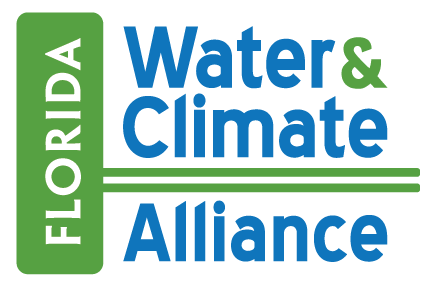Florida Water & Climate Alliance Workshop
Workshop 19
The Florida Water and Climate Alliance (FloridaWCA) is a stakeholder-scientist partnership committed to increasing the relevance of climate science data and tools to support decision making in water resource management, planning and supply operations in Florida. The FWCA brings together interested stakeholders (public water supply utilities, local governments, water management districts and academic institutions) to increase the relevance and usability of climate change and variability data and tools to the specific needs of public water supply utilities and resource managers and planners. Initiated in 2010 by the UF Water Institute, the FWCA partnership includes the UF Water Institute, Southeast Climate Consortium (SECC), the Florida Climate Institute (FCI), and UF/IFAS Center for Public Issues Education, six major public water supply utilities, representatives of local governments, and three water management districts.
The 19th workshop since the FloridaWCA began was hosted by OUC and was attended by 26 participants from 18 organizations.
Workshop Goal: Provide an environment for stakeholder-scientist exchange of current research and tools to address climate variability and change issues with a focus on increasing local relevancy to utilities and water resource managers. Explore topics that that may help inform scientists’ research that would result in an actionable science of use to practitioners.
Workshop Objectives
- Research and Planning – Share information on the state of climate science and action useful to local water supply and resource planning and operations.
- Community – Share current activities and explore interests based on shared strengths and resources of the represented institutions.
- Community – Explore opportunities to partner on activities of interest to the Participants.
Read Workshop Agenda Read Workshop Report
The workshop featured the following presentations and speakers:
- Florida Water & Climate Alliance Introduction to Workshop #19: Lisette Staal, Water Institute, University of Florida.
- Collaborating on Regional Resiliency in Tampa Bay: Heather Young, Senior Environmental Planner, Tampa Bay Regional Planning Council.
- Building Resilience to a Changing Climate: A Technical Training-Agenda (handout): Water Utility Climate Alliance (WUCA).
- National and State-wide Update on Sea Level Rise and Climate Change: Jayantha Obeysekera, Director, Sea Level Solutions Center, Florida International University.
- Florida’s Bio-economy: Potential of Recycling Nutrients and Carbon to Monetize your Community’s Sustainability Goals: Rob Teegarden, Water Policy & Research Officer, Orlando Utilities Commission.
- Florida Red Tide: a disturbance of unknown duration: Kristy Lewis, Assistant Professor, Department of Biology, University of Central Florida.
- Reflections on the Fourth National Climate Assessment: Esther Mullens, Assistant Professor, Department of Geography, CLAS, University of Florida.
- Heat related illness in a changing climate and demography of Florida: Vasu Misra, Associate Professor of Meteorology, Center for Ocean-Atmospheric Prediction Studies(COAPS), Florida State University.
- Resiliency, Adaptation, & Sustainability at the City of St. Augustine: Michael Cullum, Public Works Director, City of St. Augustine.
- Framing the Future: Climate Change Impacts and Resilience: Tracy Irani, Professor and Department Chair, Family Youth and Community Science, University of Florida/IFAS.
- Watershed Sustainability in a Changing World: Mauricio Arias, Assistant Professor, Department of Civil & Environmental Engineering, University of South Florida.
- Science Priorities and Principles of Operation, Southeast Climate Adaptation Science Center (SECASC) , Nov 2018 update (handout): SECASC – Southeast Climate Adaptation Science Center.
- Alternate methodologies for computing evapotranspiration at a 2-kilometer resolution for Florida: John Stamm, U.S. Geological Survey, Caribbean-Florida Water Science Center.
To access the database for all workshop files, click here.

